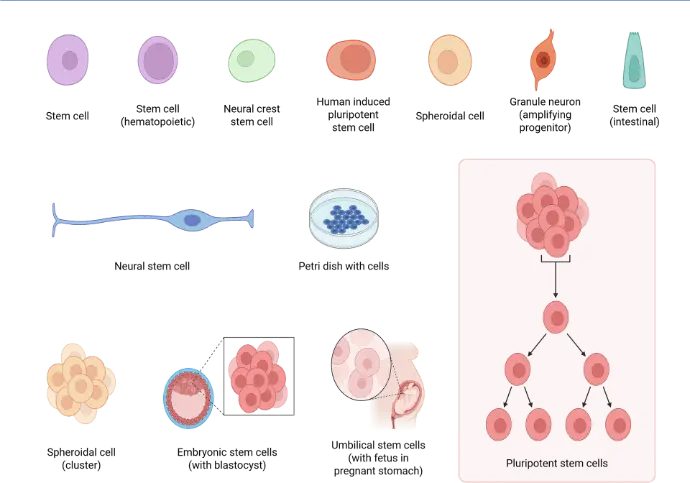Stem cells are undifferentiated cells with the unique capacity for self-renewal and the potential to differentiate into multiple specialized cell types. They form the foundation of human development and tissue regeneration and are broadly classified into embryonic stem cells (ESCs), derived from the inner cell mass of blastocysts, and adult (or somatic) stem cells, which reside in specific tissues to maintain and repair damage. A major advancement in the field has been the development of induced pluripotent stem cells (iPSCs), generated by reprogramming adult somatic cells to a pluripotent state. iPSCs combine the developmental potential of embryonic stem cells with the advantage of patient specificity, eliminating ethical concerns and enabling personalized research. In modern biomedical science, stem cells are pivotal for disease modeling, regenerative medicine, and toxicology, allowing researchers to reproduce human tissue function in vitro, study disease mechanisms, and assess the safety of drugs and environmental chemicals under human-relevant conditions. Recent studies (2023–2025) highlight progress in refining differentiation protocols and improving tissue maturity in iPSC-derived models, significantly enhancing their predictive value for clinical and toxicological applications
